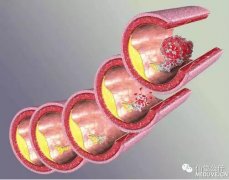2016年1月11日 讯 /生物谷BIOON/ --近日,一项发表于国际杂志Neurology上的研究论文中,来自美国国家环境健康科学协会的研究人员指出,年轻时候饮用被农药污染的牛奶的男性很有可能患上帕金森疾病。
这项研究对居住在夏威夷的449名日裔美国人进行研究,研究对象的平均年龄为54岁,所有男性都参加了老龄化研究,并且被追踪了超过30年,当这些研究对象去世后,研究者对尸体进行了检查,在尸体大脑残骸中发现了一种名为七氯环氧化物的有机氯农药(杀虫剂),,随后研究者表示,在20世纪80年代初期研究人员在夏威夷的牛奶中检测到了高水平的七氯环氧化物。
研究者表示,相比每天饮用少于两杯牛奶的非吸烟者,每天饮用超过2杯牛奶的非吸烟个体大脑黑质区域中的神经元密度会下降41.5%,而且在吸烟者机体中牛奶的消耗和大脑细胞的缺失并无关联;同时研究者还发现,在90%的喝牛奶的个体大脑的残留物中都发现了七氯环氧化物的存在,而不喝牛奶的个体中仅有63.4%的个体机体中存在这种农药残留。
研究者Honglei Chen博士表示,目前有很多种解释可以帮助阐明牛奶中农药和个体患帕金森疾病之间的关联,而且我们仅在研究初期测定了个体的牛奶消耗量,而且我们还不得不推测,这种测定结果是否可以代表随着时间流逝参与者的饮食习惯。(生物谷Bioon.com)
本文系生物谷原创编译整理。欢迎转载!点击 获取授权 。更多资讯请下载生物谷资讯APP。
doi:10.1212/WNL.0000000000002254
PMC:
PMID:
Midlife milk consumption and substantia nigra neuron density at death
Robert D. Abbott, PhD, G. Webster Ross, MD, Helen Petrovitch, MD, Kamal H. Masaki, MD, Lenore J. Launer, PhD, James S. Nelson, MD, Lon R. White, MD and Caroline M. Tanner, MD, PhD
Objective: To examine the relationship between midlife milk intake and Parkinson disease (PD) incidence through associations with substantia nigra (SN) neuron density and organochlorine pesticide exposure in decedent brains from the Honolulu-Asia Aging Study. Methods: Milk intake data were collected from 1965 to 1968 in 449 men aged 45–68 years with postmortem examinations from 1992 to 2004. Neuron density (count/mm2) was measured in quadrants from a transverse section of the SN. Additional measures included brain residues of heptachlor epoxide, an organochlorine pesticide found at excessively high levels in the milk supply in Hawaii in the early 1980s. Results: Neuron density was lowest in nonsmoking decedents who consumed high amounts of milk (>16 oz/d). After removing cases of PD and dementia with Lewy bodies, adjusted neuron density in all but the dorsomedial quadrant was 41.5% lower for milk intake >16 oz/d vs intake that was less (95% confidence interval 22.7%–55.7%, p < 0.001). Among those who drank the most milk, residues of heptachlor epoxide were found in 9 of 10 brains as compared to 63.4% (26/41) for those who consumed no milk (p = 0.017). For those who were ever smokers, an association between milk intake and neuron density was absent. Conclusions: Milk intake is associated with SN neuron loss in decedent brains unaffected by PD. Whether contamination of milk with organochlorine pesticides has a role in SN neurodegeneration warrants further study.



